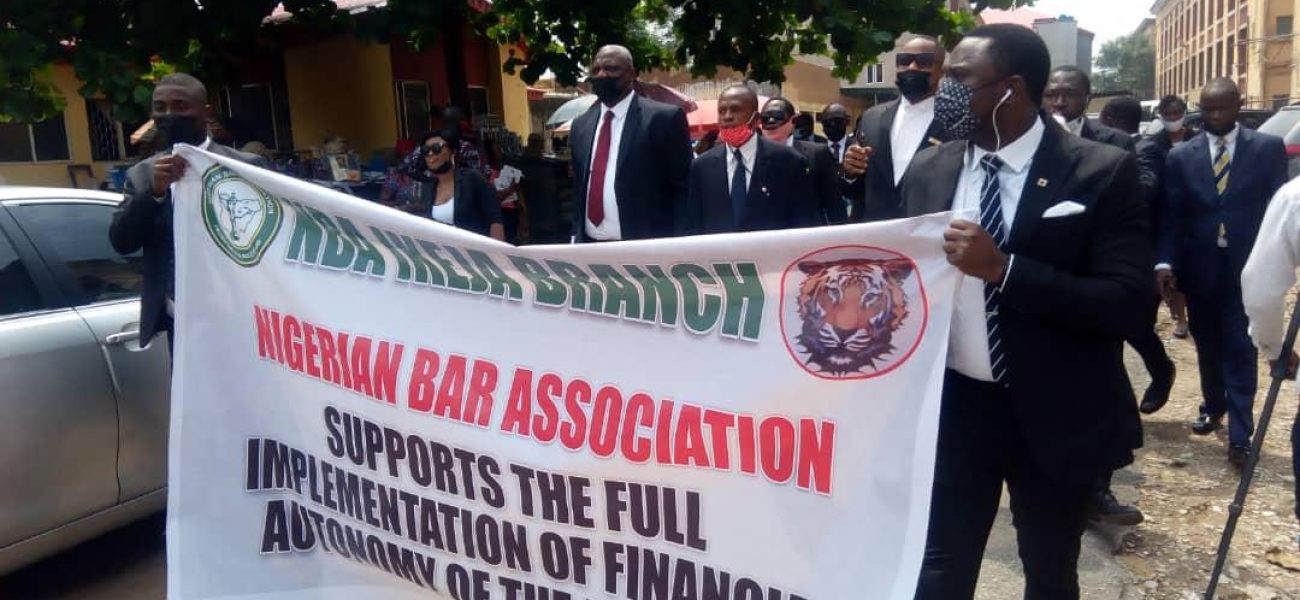Strike by staff of the judiciary across Nigeria’s 36 States and the Federal Capital Territory (FCT) has caused a shutdown of Nigerian courts with huge implications for the justice system in the country. Workers of the Judiciary Staff Union of Nigeria (JUSUN) had called a strike to demand the implementation of section 121(3) of the 1999 Nigerian Constitution, which provides for financial autonomy for State judiciaries and legislatures. The section states as follows: “Any amount standing to the credit of the (a) House of Assembly of the State; and (b) Judiciary; in the Consolidated Revenue Fund of the State shall be paid directly to the said bodies respectively; in the case of judiciary, such amount shall be paid directly to the heads of the courts concerned.” The section arose from the alteration to the Constitution effected by the 8th National Assembly in 2017. Since the alteration, several State governments in the country have failed to implement this Constitutional requirement. This compelled President Muhammadu Buhari to issue an Executive Order, No.10 directing the implementation of the Constitution alteration. Although the Order was considered superfluous to the Constitution alteration, it nevertheless emphasized the seriousness of the matter. A national convening by the Minister of Justice and Attorney General of the Federation, Abubakar Malami, Presidential Adviser on Legislative Matters, Sen. Itah Enang and Policy and Legal Advocacy Centre (PLAC), which was supported by the United Kingdom Foreign, Commonwealth and Development Office (FCDO), previously the Department for International Development (DFID) in 2018, outlined implementation direction and strategies for the provision.
There is worry that the weakening of Nigeria’s institutions of democracy represents a major threat to their survival. The country’s democracy rests on the principle of separation of powers, with the legislature, the judiciary and the executive forming the tripod of democratic survival and expansion. Unfortunately, of the three arms of government, the executive has through its overbearing powers and influence, nearly squashed relevance out of the legislature and the judiciary. Starved of funds, these two arms of government that play critical roles of checks and balance have been weakened to the point that their effectiveness has become starkly deficient and inadequate. It is also worrying that there is even a debate about the implementation of this Constitutional provision, a concern that underscores the lack of respect for the rule of law in Nigeria. The Constitution being the highest known law in the country should not be in debate in any way, as to whether its provisions be respected or not.
The strike action by JUSUN certainly enjoys support across the country. In some States, lawyers from the Nigerian Bar Association (NBA) have joined in street marches to support the strike. At its meeting after the commencement of the strike, governors under the aegis of the Nigerian Governors’ Forum (NGF) have indicated the intention to now implement the provisions of section 121(3) of the Constitution, giving a May 2021 date for this.

